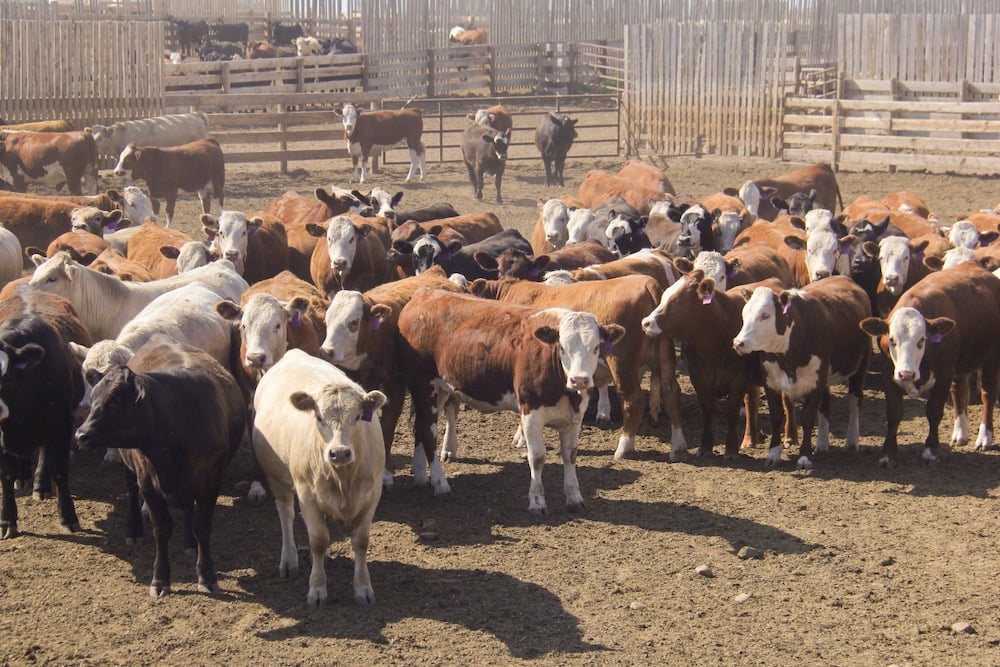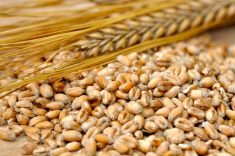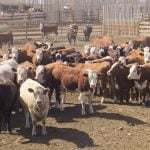MarketsFarm — Demand for feed grains at Alberta feedlots continues unabated as more corn from the United States makes its way into the province.
“Demand at feedlots has been status quo. Feedlots are buying imported U.S. corn and DDGS. Along with that, there is also barley and feed wheat. They are getting enough supplies right now,” Jim Beusekom, president of Market Place Commodities at Lethbridge said.
He estimated corn is currently making up 40 to 50 per cent of feed, while also mentioning that Canadian grains also make up a healthy share.
Read Also

U.S. livestock: Feeder cattle rise to new highs on tight supply, strong cash prices
Chicago | Reuters – Chicago Mercantile Exchange feeder cattle futures rallied on Thursday to a record high on strong cash…
“It seems to me that the balance works. There are enough Canadian feed grains such as barley, wheat, oats and rye are all trading on a per tonne basis very similar to U.S. corn,” Beusekom said. “U.S. corn is providing a ceiling on these commodities right now and there’s not much price traction other than what U.S. corn is doing.”
The mean price for Lethbridge feed, which includes barley, corn and wheat, is around $410 to $415 per tonne, Beusekom added. According to Prairie Ag Hotwire, the high-delivered bid for Alberta feed barley was $8.97 per bushel ($411.99/tonne), while the high-delivered bid for Alberta feed wheat was $11.21/bu. ($411.90/tonne) as of Wednesday. Prices went down by seven and eight cents per bushel, respectively, compared to one month earlier.
Seeding went well in much of Alberta, but ongoing dryness is causing concern.
“Most crops are now in the stage where they require a lot of moisture to grow and mature. We’re just not getting enough of that,” Beusekom explained. “We’re not past the point of no return, but you’re starting to see yield reduction.”
He expects feed prices to decline by as much as $50 per tonne by August or September, despite the potential for drought across Alberta because prices are currently higher than in the world markets.
“The drought conditions are somewhat priced into the market already,” Beusekom added.
— Adam Peleshaty reports for MarketsFarm from Stonewall, Man.

















